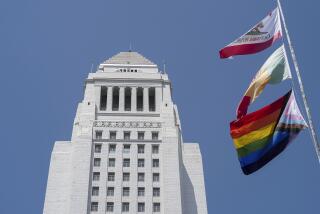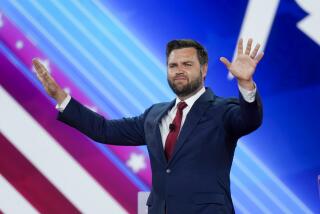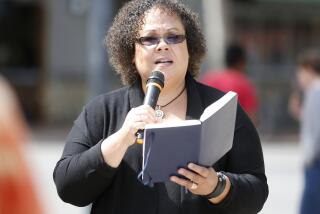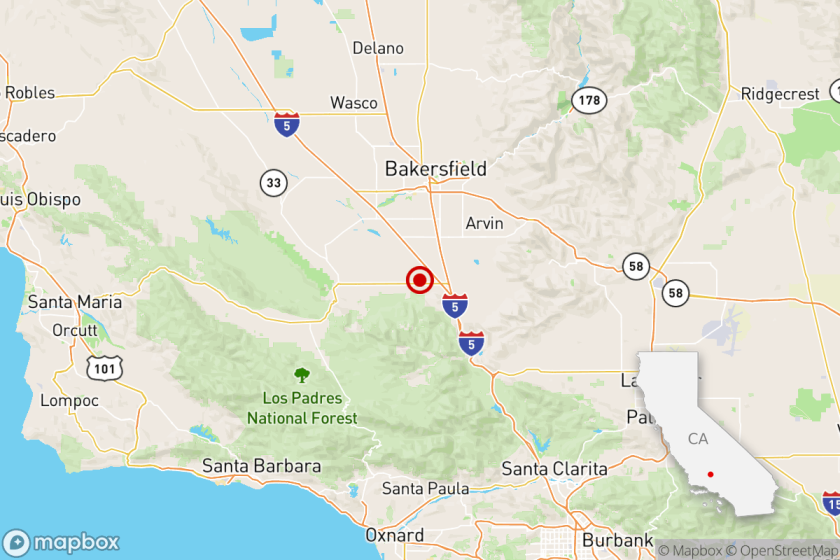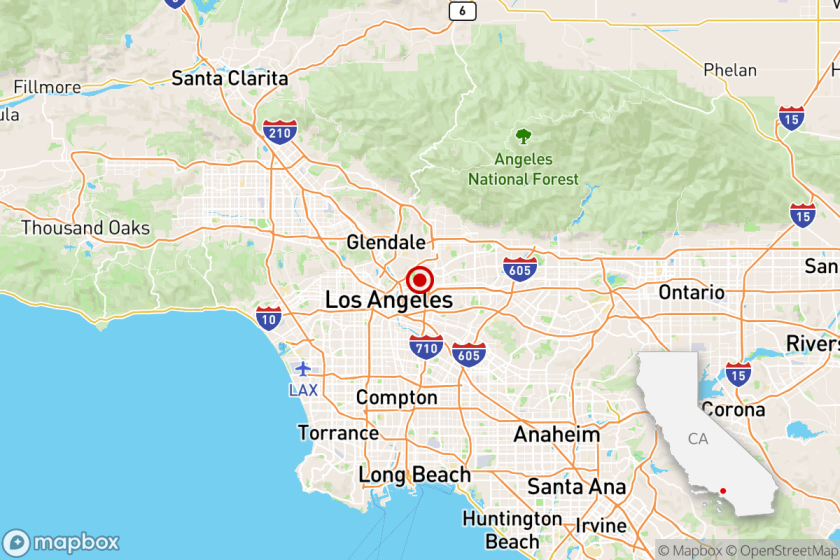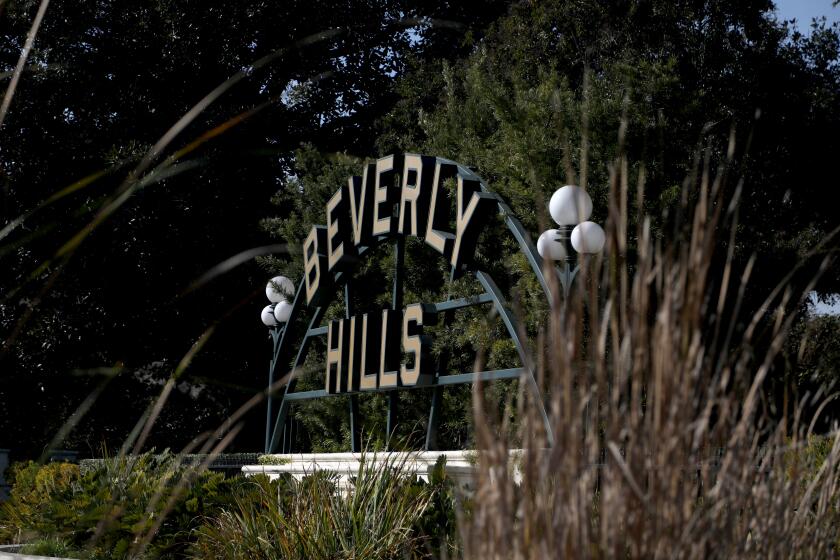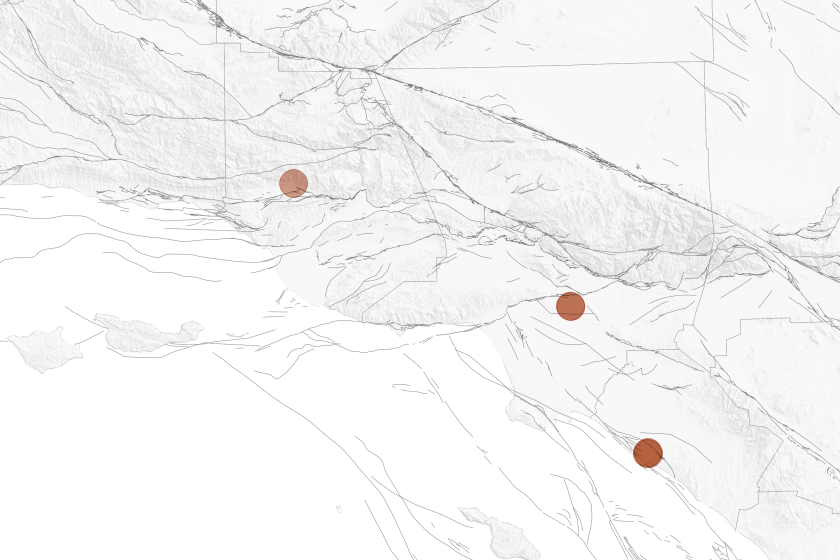Court Sees Delay as Too Disruptive
The U.S. 9th Circuit Court of Appeals, which has earned a reputation for causing legal earthquakes on issues ranging from capital punishment to the Pledge of Allegiance, decided Tuesday that postponing California’s Oct. 7 recall election would shake things up too much.
If the election were postponed, the “enormous resources” already invested in the bid to recall Gov. Gray Davis and in the campaigns involving two ballot measures would go to waste, the 11-judge panel declared in an unsigned opinion.
The judges noted that money had already been spent on election materials and that hundreds of thousands of absentee voters had already cast their ballots.
“Interference with impending elections is extraordinary, and interference with an election after voting has begun is unprecedented,” the court said. “Investments of time, money and the exercise of citizenship rights cannot be returned.”
The 11-0 decision toppled last week’s ruling by a liberal three-judge panel, which held that voters in Los Angeles and five other counties that used antiquated punch-card voting machines faced an unacceptable risk that their votes would not be counted.
That ruling held that requiring voters in the six counties to use the error-prone punch-card machines constituted a clear violation of equal protection of the laws under the principles enunciated in Bush vs. Gore, the decision that brought an end to the 2000 presidential election by halting a recount in Florida.
The panel’s ruling reversed a ruling of U.S. District Judge Stephen V. Wilson in Los Angeles, who said that the plaintiffs had not proved their case and that, consequently, postponing the election was not justified.
On Tuesday, the 11-judge panel said that under controlling 9th Circuit precedents it was obliged to grant substantial deference to Judge Wilson’s ruling -- unless he clearly misinterpreted the law. The new panel said he hadn’t.
Legal scholars said that to secure unanimity, the court had to craft an opinion that would satisfy all 11 members of the panel, who are regarded as ranging from very conservative to moderately liberal.
Deciding the case on narrow grounds “must have been the only way to get unanimity,” said Los Angeles lawyer Edward Lazarus. “The court quite properly recognized the value of unanimity in such a highly political case and downplayed any serious analysis of the merits to get to that result.”
In its decision Tuesday, the court emphasized that its review of the case “is limited and deferential” to U.S. District Judge Stephen V. Wilson, who had initially thrown out the lawsuit filed by the American Civil Liberties Union on behalf of three civil rights groups: the Southwest Voter Registration Education Project, the NAACP and the Southern Christian Leadership Conference.
Analysts said Chief Judge Mary Schroeder, a moderately liberal appointee of former President Carter, had been particularly mindful of criticisms that the court is too left-leaning and out of touch with the public.
The 12-page decision was issued just after 9 a.m., less than 24 hours after the 11 judges heard oral arguments in the case. The quick ruling reflected the court’s understanding that it needed to act swiftly, because the election is only two weeks away. Litigation had placed a cloud over the whole process.
“This decision shows the world that the 9th Circuit is not insensitive to” wider concerns that postponing the election would be too disruptive, said Vikram D. Amar, a constitutional law professor at UC’s Hastings College of the Law in San Francisco.
Amar and several other legal scholars said the outcome was predictable given that many judges on the panel sharply questioned the ACLU’s lawyers Monday.
“You knew” from the questioning “where they were going, and the real question was how they were going to get there,” said Pamela Karlan, a Stanford University law professor and a voting rights expert, who called the decision “very minimalist.”
Since the ruling was based on narrow grounds -- deference to a lower court judge -- the 11-judge panel did not have to make decisions on thornier issues such as whether use of the punch-card machines in the recall election would violate equal protection of the laws or the federal Voting Rights Act.
The judges acknowledged that the plaintiffs were “legitimately concerned that the use of the punch-card systems will deny the right to vote to some voters who must use that system.” The court said, “At this time, it is merely a speculative possibility, however, that any such denial will influence the result of the election.”
The 11-judge panel conceded that “there is no doubt that the right to vote is fundamental.” However, the judges quickly added, “a federal court cannot lightly interfere with” or block a state election. In fact, the judges emphasized, the decision to halt “an impending election is so serious that the Supreme Court has allowed elections to go forward even in the face of an undisputed constitutional violation,” citing three prior Supreme Court decisions on this point.
Tuesday’s ruling brought an end to the legal war against the recall -- at least for now. The ACLU issued a statement expressing disappointment in the decision but announced that it would not appeal to the U.S. Supreme Court because, “with the election just two weeks away, we do not believe we should prolong the uncertainty any longer.”
Most legal observers said the ACLU’s decision not to appeal was prudent because the Supreme Court was highly unlikely to hear the case.
Nonetheless, the ACLU said it remains “firmly convinced that using voting equipment officially declared by the state to be obsolete, in a number of counties with a high concentration of minority voters, violates the equal protection clause of the 14th Amendment and the Voting Rights Act.” The ACLU said it was “deeply concerned” about the fairness and accuracy of the upcoming election.
The 9th Circuit panel said Tuesday that the plaintiffs had “made a stronger showing on their Voting Rights claim” than on the equal protection claim.
However, the court said, “there is a significant dispute in the record as to the degree and significance of the disparity” in error rates between the punch-card machines and equipment used in the other counties.
Consequently, the judges said, the plaintiffs had only shown “a possibility of success on the merits,” not “a strong likelihood” -- the standard they needed to meet to obtain an injunction postponing the election.
Some legal observers cautioned that there could be more litigation after Oct. 7 if the vote on the recall and two ballot initiatives were particularly close.
California Secretary of State Kevin P. Shelley, who was the named defendant in the case, welcomed the panel’s decision and said he would redouble voter education efforts to ensure that “a vote cast is a vote counted.”
The decision was “statesmanlike, scholarly and careful,” said Charles P. Diamond, who represented Ted Costa, the man who launched the recall. “I was particularly appreciative that the decision was unanimous. Both California and the 9th Circuit needed that.”
U.S. Sen. Dianne Feinstein, a staunch backer of Davis, also lauded the decision, another sign of the widespread feeling that a delay would create considerable problems, regardless of how one felt about the governor.
“In a state as large as California, it is very difficult to change an election. And while I believe the recall is a terrible mistake, I also think postponement would have created more problems than it solved,” Feinstein said.
Amar said the image of the 9th Circuit, which has become a lightning rod for conservatives in recent years, should improve with Monday’s telecast of the hearing in this case. “Televising the argument showed the judges’ personal and intellectual depth,” he said.
*
(Begin Text of Infobox)
What the court said
‘There is no doubt that the right to vote is fundamental, but a federal court cannot lightly interfere with or enjoin a state election.’ ‘Interference with impending elections is extraordinary
with an election after voting has begun is unprecedented.”Plaintiffs will suffer no hardship that outweighs the stake of the state of California and its citizens in having this election go forward as planned and as required by the California Constitution.’
Source: Associated Press
More to Read
Start your day right
Sign up for Essential California for news, features and recommendations from the L.A. Times and beyond in your inbox six days a week.
You may occasionally receive promotional content from the Los Angeles Times.
